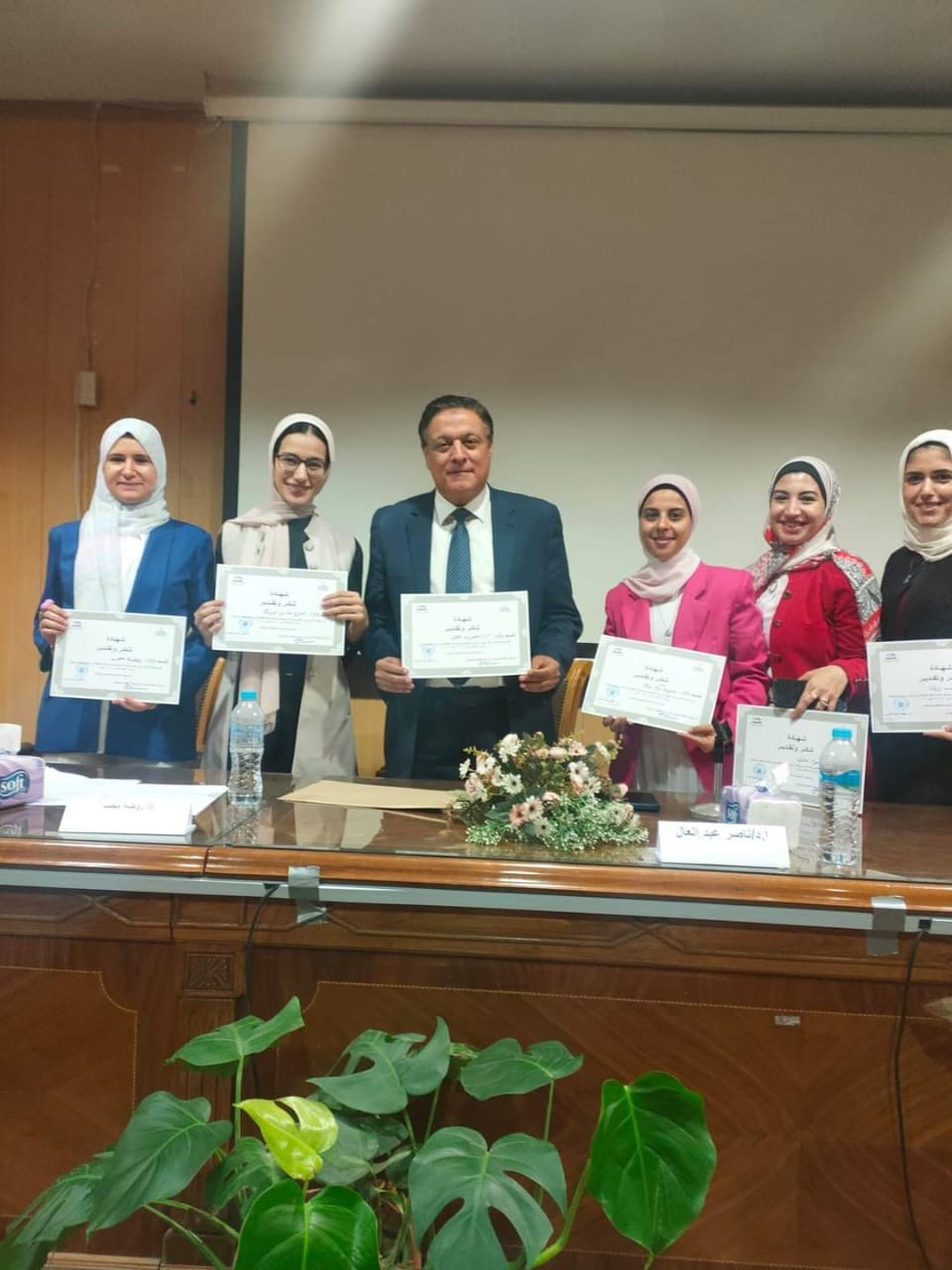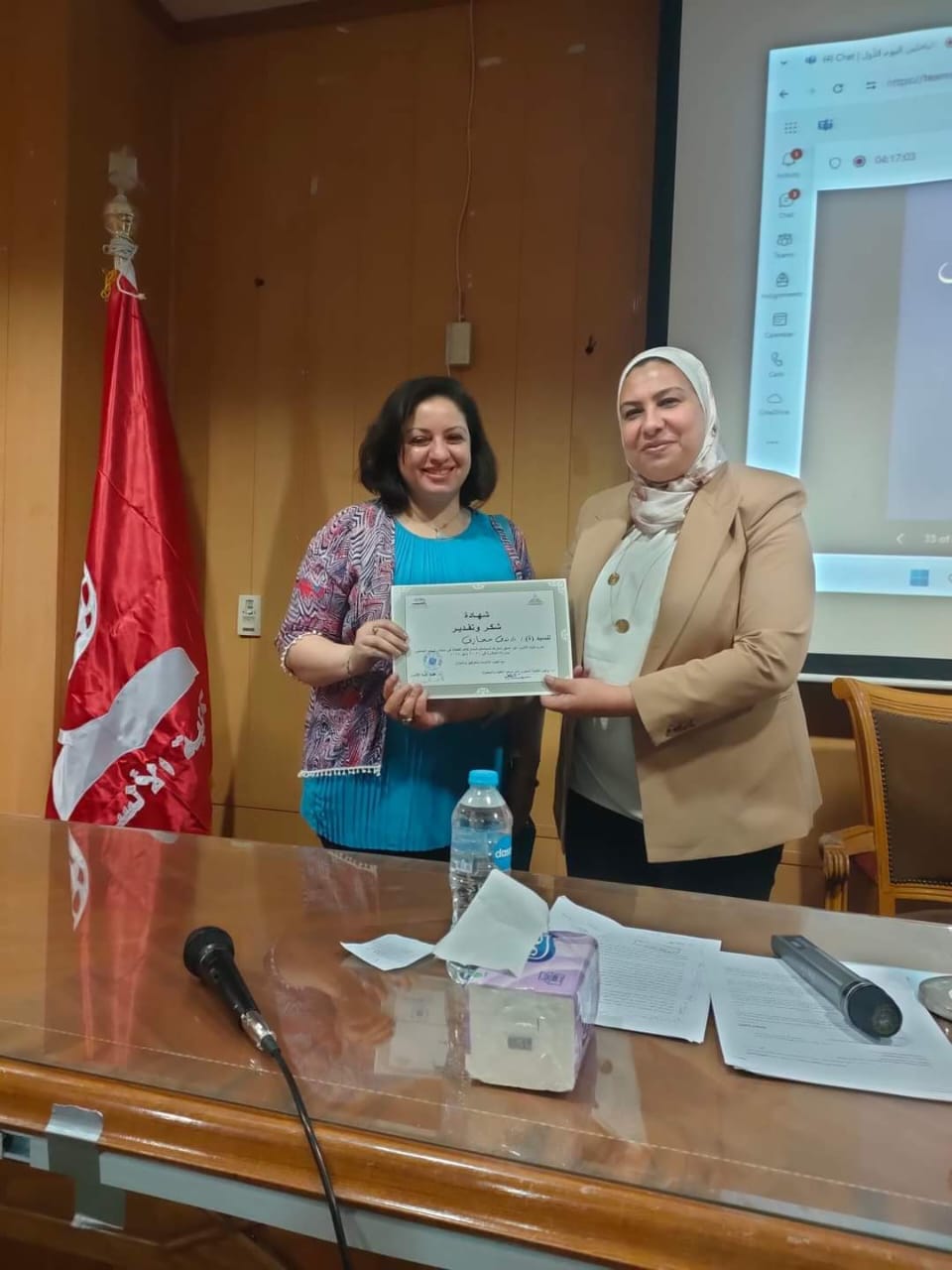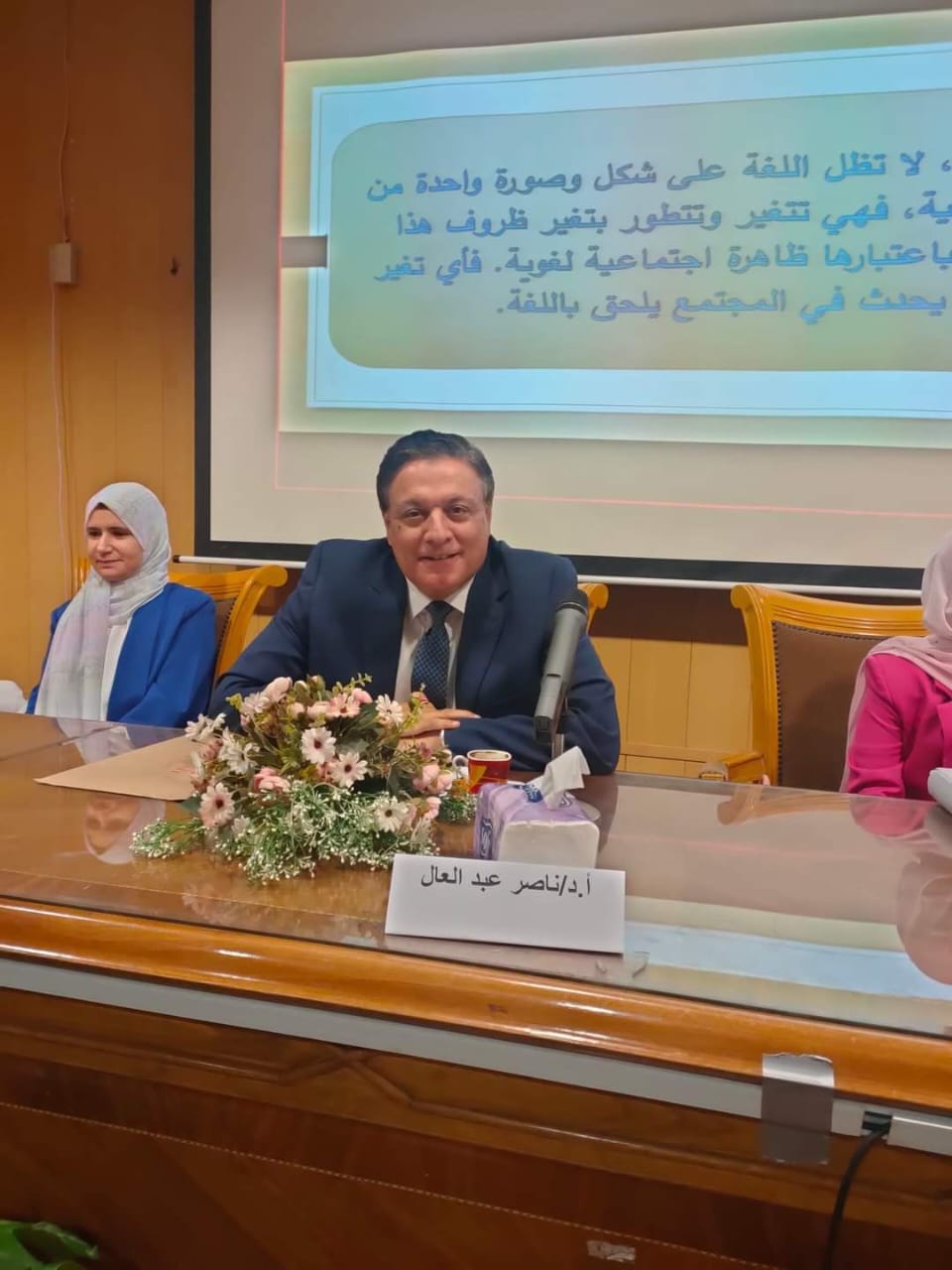The Dean of the Faculty of Al-Alsun opens the 10th session of the Youth Researchers Forum entitled “Creativity Across Multimedia in Literature, Language, and Translation”
The Graduate Studies and Research Sector at the Faculty of Al-Alsun, Ain Shams University, organized for the tenth year in a row a scientific forum for young researchers entitled “Creativity through Multimedia in Literature, Language and Translation”, under the patronage of Prof. Salwa Rashad, the Dean of the Faculty, and supervised by Prof. Ashraf Attia, Vice Dean of the Faculty for Graduate Studies and Research.
During her opening speech, Prof. Salwa Rashad, Dean of the Faculty, said that the Faculty of Al-Alsun at Ain Shams University presents, during its annual conference for researchers, a model for linking Arab and Western culture and Arabizing foreign books with a historical, cultural and scientific character that distinguishes it from other corresponding faculties at the level of Egyptian universities, which necessitates the necessity of the faculty developing continuous development plans for the role. It plays a role in preparing cadres of specialists and researchers in the fields of literature, language, and translation.
She added that this year’s conference, entitled “Creativity through Multimedia in Literature, Language, and Translation,” aims to develop scientific research in line with Egypt’s Vision 2030, the sustainable development goals, and the digital transformation strategy and transforming it into a digital society. The forum’s goal is also consistent with the strategic goals of Ain Shams University, which succeeded in achieving Improving its international classification and obtaining five stars in the British QS classification by achieving excellence in scientific research and supporting innovation.
 |
 |
 |
||
She pointed out that the topic of the forum this year is consistent with the measures taken recently by the faculty in developing its study programs in graduate studies, including preparing an interdisciplinary program in graduate studies that integrates the translation specialization with computer science, which was activated in 2021, and aims to train researchers to use software in managing translation projects and translating... Multimedia, addressing translation problems, and enriching scientific research in the field of technology employment.
She continued her speech, noting that in the same direction, the faculty established the Innovation Center as a branch of the university’s main center, with the aim of linking innovation and scientific research with entrepreneurship and societal needs, meeting national challenges, and finding innovative solutions to them. The faculty also annually holds the “Sunni People Innovate” competition at the bachelor’s and postgraduate levels. It has won first place twice in the researchers track for graduate students who have ideas for applied research that can solve a problem at the level of the “Ain Shams Innovates” competition held by the university.
The faculty has also developed the technological infrastructure to meet the new programs and research directions that have been developed, including the addition of two new laboratories to serve the new programs and interface courses that are related to technological applications, as well as cooperation with the university and the Ministry of Higher Education in establishing new electronic examination halls equipped to receive electronic examinations at the local and international events have been held successfully by the faculty over recent years.
For his part, Dr. Ashraf Attia, Vice Dean of the Faculty for Graduate Studies and Research, said that this year’s forum addresses the topic of artificial intelligence and its applications used to serve researchers and its impact on the future of the study of linguistics.
This year's forum will be held differently from previous years, as its activities will not be limited to presenting research papers by young researchers and faculty staff but will also include several dialogue sessions with the participation of prominent scholars in the field of linguistic and literary studies and translation in Egypt and abroad.
Prof. Sameh Hanna, former professor at the University of Leeds and book translation consultant at the International Federation of Bible Societies, talked about the cultural and social aspects of the translation process that must be considered when translating, as the translator cannot be separated from the social and cultural influences of the surrounding environment. His Excellency also addressed translation through multimedia and measurement mechanisms. Quality of multimedia translation. His Excellency discusses the huge work that he is supervising, which is reviewing the translation of the Bible and the stages that the translation of the Bible went through, whether oral or written translation, or through multiple media, or digital translation.
Also Prof. Mohamed Okmadhan, Head of the Translation Department at the United Nations Headquarters in Geneva, gave a presentation on machine translation and computer-assisted translation and the difference between them, stressing the importance of developing academic curricula and including computer-assisted translation applications (CAT tools). His Excellency touched on translation standards in international organizations, led by the United Nations.
The forum witnessed an important session that discussed the book Translation and Conflict by Prof. Mona Baker, moderated by Prof. Mustafa Riad, Professor at the Faculty of Arts, Ain Shams University, and Dr. Nada Hegazy, Translation Lecturer in the English Language Department at the Faculty of Al-Alsun, where the session discussed the textual accompaniments that Dr. Mona Baker reviewed in her book and the influence of the translator’s personality and ideology in the translation process.
The forum’s activities will continue tomorrow, Tuesday, where 3 important sessions will be held in addition to a joint session between members of the faculty’s cultural committee and members of the translation committee of the Supreme Council of Culture, entitled: Translation challenges in the era of digitalization. The first sessions of the second day will begin with an important session on artificial intelligence and anticipating the future in the field of language studies and translation.


.svg)

